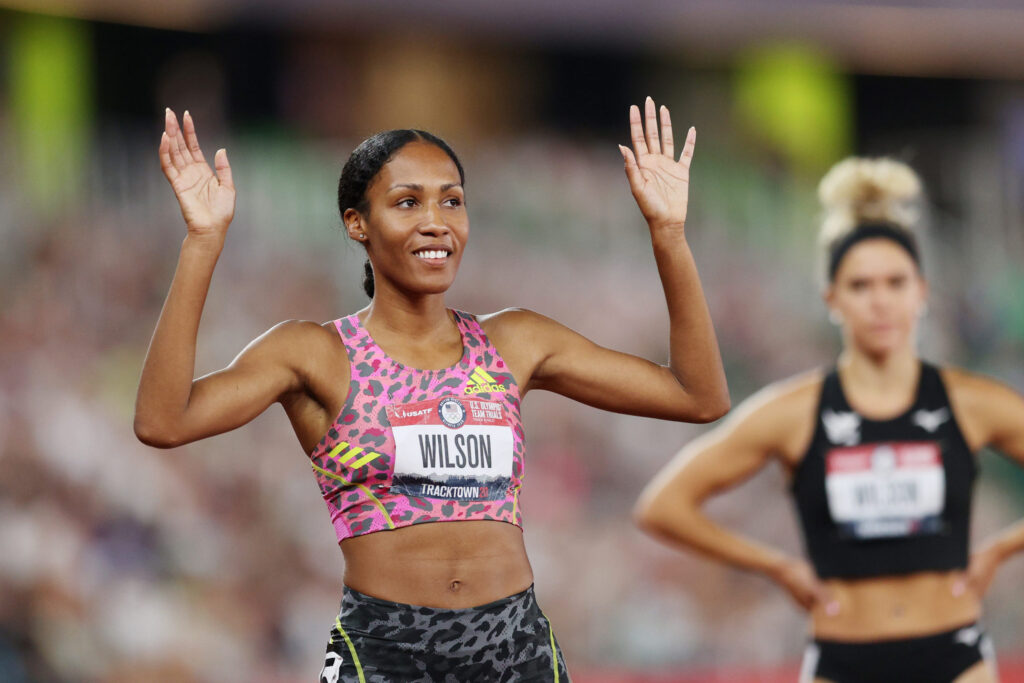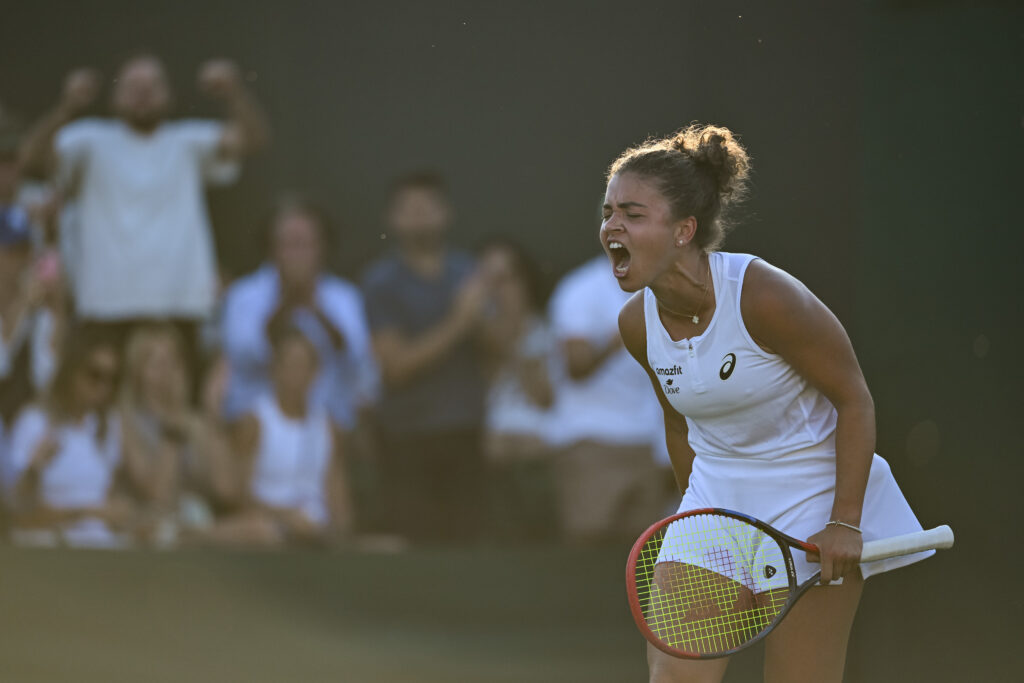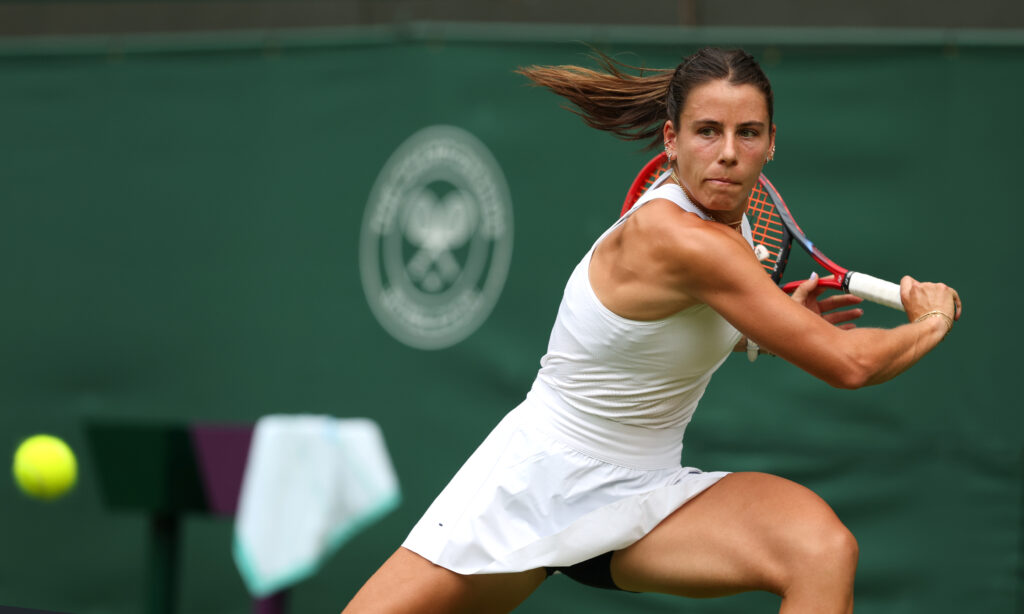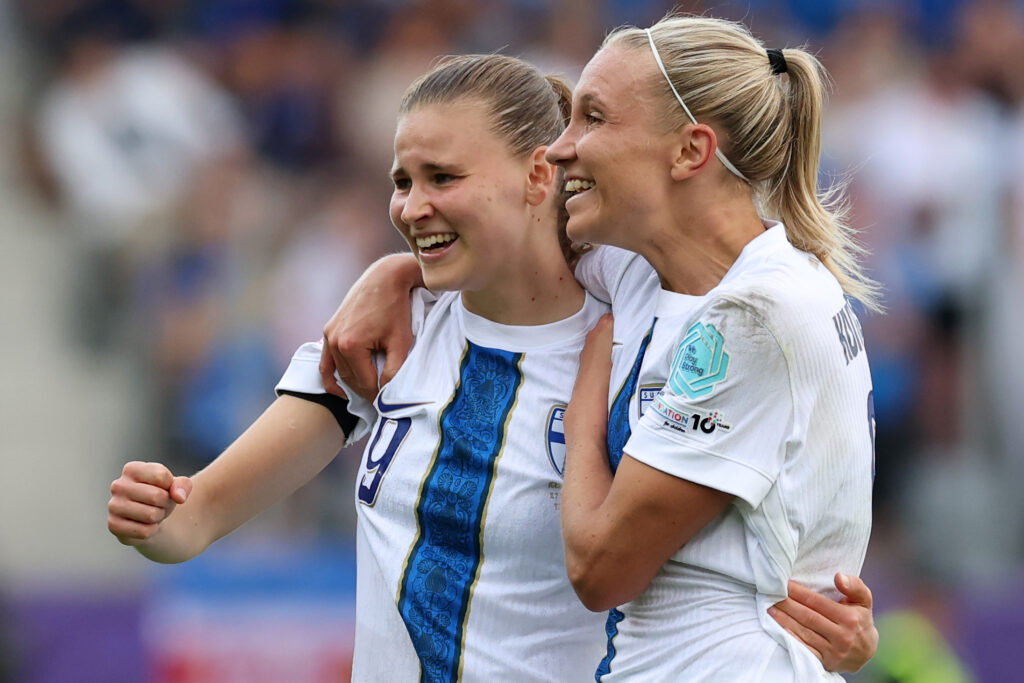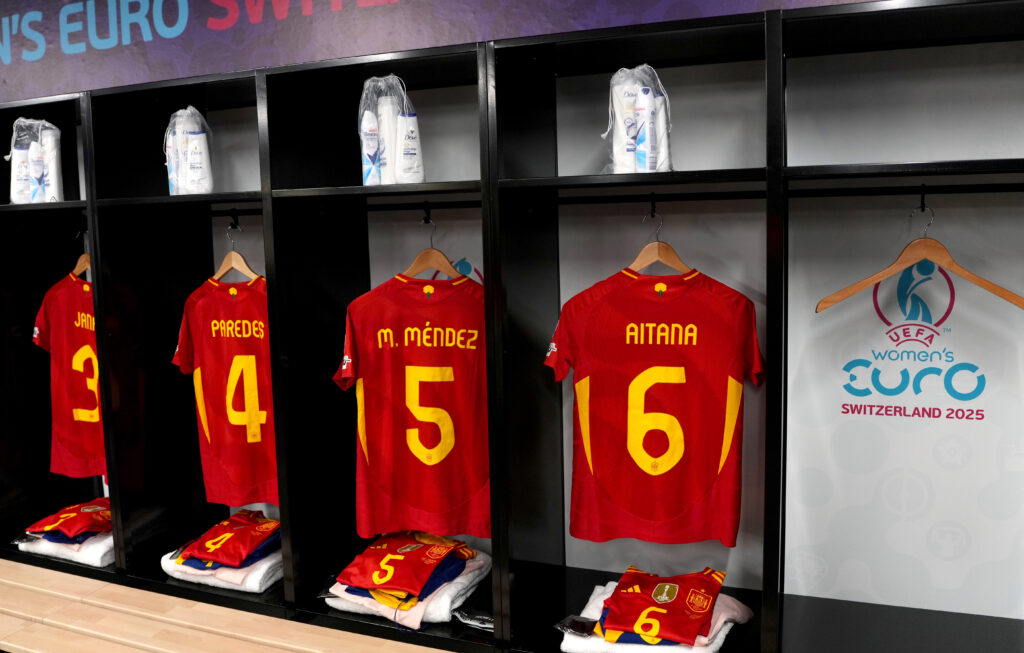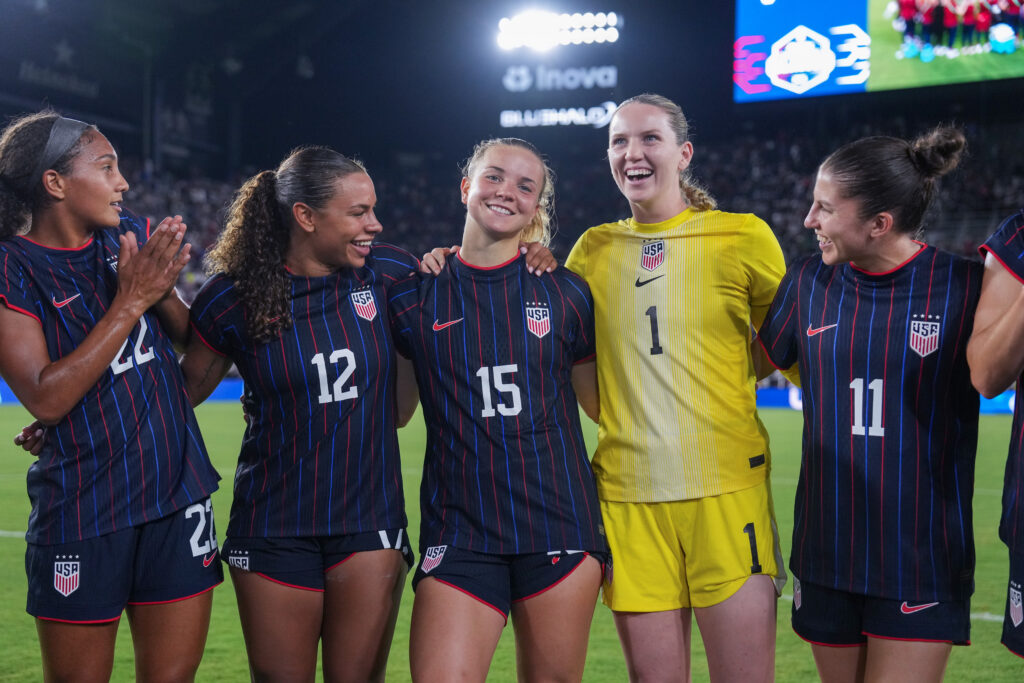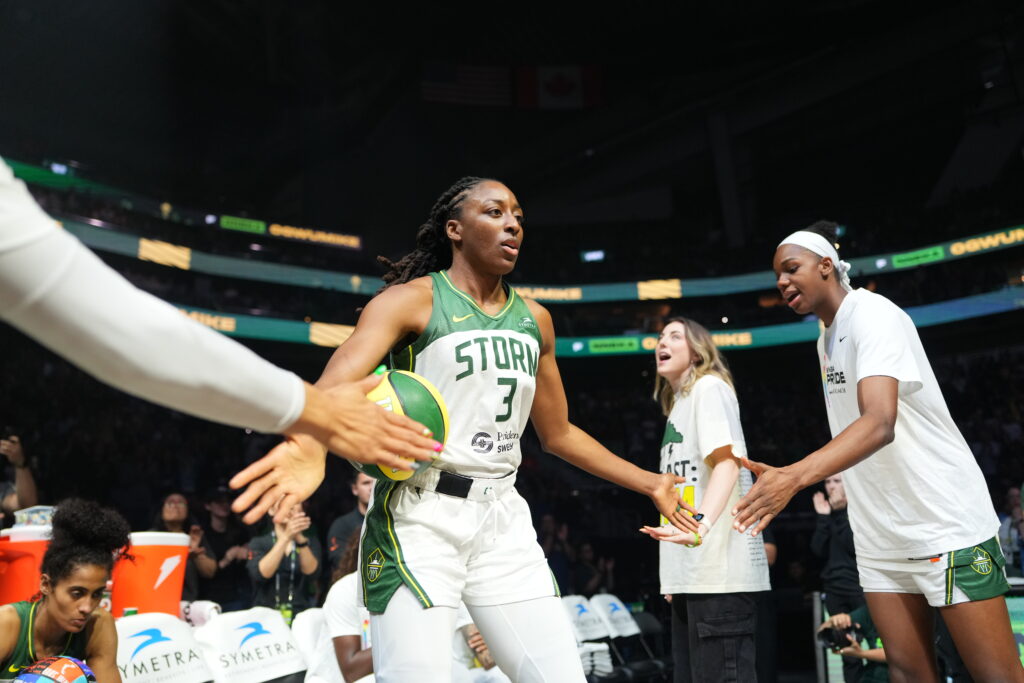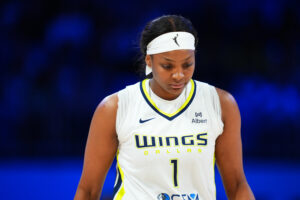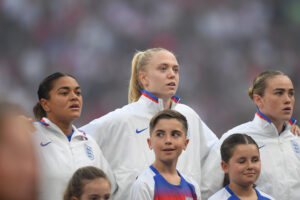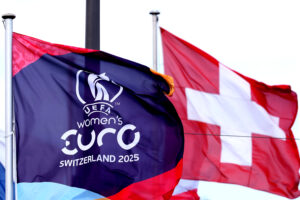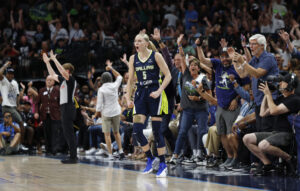For Ajee’ Wilson, the past year during the pandemic was somewhat of a blessing. The American record-holder in the 800 meter used the time away from competition to rest, reset and refocus on the mission, four years after a disappointing finish at the Rio Olympics.
Wilson’s preparation paid off at the United States Olympic trials in Eugene, Ore., where temperatures reached 108 degrees and events were delayed as a result. The 27-year-old fought through the heat to place third in the 800-meter final with a time of 1:58.39, just behind Athing Mu and Raevyn Rogers.
The finish qualified Wilson for her second Olympic Games. In Tokyo, she’ll be part of an American group looking to win its first gold medal in the event since 1968 and first medal of any kind since 1988.
“It was a super intense weekend, that being our third race of the series, having the delay with the heat,” Wilson said. “But coming out of that final, I was super relieved. I was excited and happy that I was able to round off an amazing team that we’ll be sending to Tokyo.”
Wilson spoke with Just Women’s Sports about what she’s learned since Rio, the biggest sacrifices she has to make for the Olympics and what she’s most looking forward to in Tokyo.
Had you ever run in heat that intense? How challenging was that?
I didn’t actually get that much time out there in the heat. Probably the hottest I’ve ever run in was 107 a few years before at the U.S. Championships in Sacramento. But right before we started warming up (at the trials), one of the heptathletes passed out, so they had to make the decision that they felt like was going to protect and be safest for most of the athletes.
I’m sure your preparation, recovery and training come into play in a situation like that. Which tactics and supplements have you found to be helpful through your partnership with Thorne?
I use their iron, their basic, two-a-day nutrient, their D3 and, recently since the partnership, their amino complex, which is a recovery drink. The first three that I take are pretty much just to meet deficiencies that I know that I have through routine bloodwork. But the big picture and the big goal is just better health — that’s their campaign. Whether it’s for an elite athlete or the everyday person, avid health lover, their products and their mission are geared towards just being healthier people.
Did you have to make any training accommodations over the past year because of the pandemic?
Yeah, so from March until June last year, we pretty much shut down as a team. So during that time phase, I was just on my own, mainly doing long runs, a workout every now and again. But because the season was pretty much canceled and the games were canceled, we backed off training a little bit, just to not beat yourself up if you don’t have to be ready that soon. And so coming into this season, in the fall, it was about gearing up again and getting back into the swing of preparing for a competitive schedule.
Did that break from your usual training regimen change your perspective of the sport in any way?
It did. I think the one thing I immediately realized was I reconnected with how much I love what I do and how much I love some of the smaller aspects of training and racing that I took a little bit for granted. Things as simple as seeing other friends that I’ve grown to know over the years at competitions, training with my teammates and being competitive are things that I feel like I was able to tap back into and appreciate more during that time.
This will be your second Olympics. Is there anything you took away from Rio that you will apply this time around in Tokyo?
From my specific experience in Rio, and not doing as well as I wanted that whole season, it was coming back home and saying, I need to see what’s going on. I’m not feeling how I should. That was the start of focusing on my health and on the deficiencies that I’m now addressing with Thorne products. It started from the Games, realizing like, hey, I need to take a step back and make sure that my body’s prepared to do what I’m asking it to do.
What changed about your training from before Rio to before Tokyo?
The simplest difference is that stuff that I wasn’t able to do then, I’m able to do now. I think over the years, my workload has gotten higher, and the more trained you get, the better you are at doing what you’re doing. So our workouts are a lot more intense. I have a routine lifting program now. We sprinkled things in here and there before Rio, but I feel like we’ve become more deliberate about that in the year since.
What do you find are the biggest sacrifices you have to make in preparation for an event like the Olympics?
I feel like I always go back and forth with that word because I think since I’ve been doing it for so long, how I live is just what it is. I have my habits, I have my routine. So things that I may have looked at as sacrifices when I first started fresh out of high school, now I don’t view them the same way and I appreciate them for being necessary to be successful. I would say, once upon a time, limiting my social butterfly experiences was something that was difficult to navigate at first. But I think as I’ve gotten older, knowing how to manage my time and having family and friends that are super supportive have made that feel like less of a sacrifice and more as something that I’ve adapted to.
Do you have any pre-race rituals?
As I’m getting ready to go to the track to race, I have “I Was Here” by Beyoncé on repeat. That’s my go-to song. I don’t listen to music when I train or warm up, so that’s the last soundbite that I get before I go. And then usually before warming up for my race, I’ll take a quick power nap, get up and start my warm-up.
Between now and leaving for Tokyo, what will you be doing?
I’ll just be home training. I train out of Philadelphia. I may be racing sometime in between, like in mid-July, but that’s still up in the air. So I’ll just be at home putting in work and preparing as best as I can to get ready to go to Tokyo.
What are you most looking forward to about the Olympics?
I’m really looking forward to just being at the start line of the first round, just taking in the magnitude of the moment. I’m not really sure how everything’s going to play out organization-wise in the village and with the travel and the games. So that’s been what my heart’s been set on, just that moment and having that opportunity.
